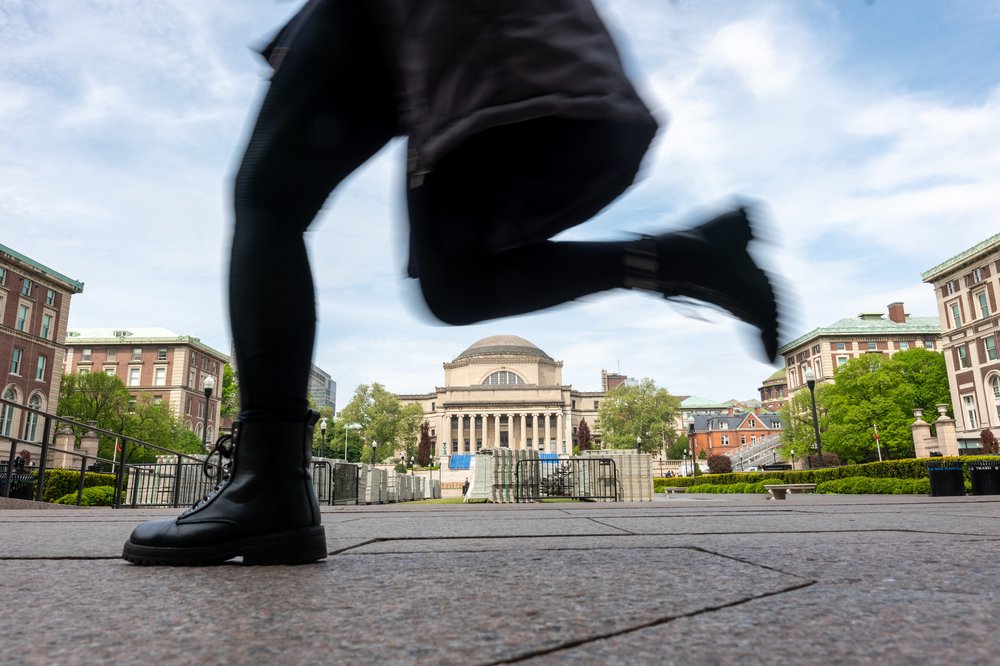Hundreds of research grants at Columbia canceled following Trump edict, administrator says
March 11, 2025, 11:06 a.m.
The National Institutes of Health is terminating 232 grants for scientific research at Columbia University Irving Medical Center, according to an email an administrator sent to faculty.

Hundreds of researchers at Columbia University Irving Medical Center are starting to get notice of canceled grants as President Donald Trump’s administration slashes $400 million in federal funding to the university.
The National Institutes of Health is terminating 232 grants for scientific research at Columbia University Irving Medical Center, about a quarter of the center’s research portfolio, Dr. Joshua Gordon, the chair of psychiatry at Columbia’s Vagelos College of Physicians and Surgeons, wrote in an email to faculty Monday.
“Individual investigators may receive communication from the NIH this evening,” Gordon wrote in the email, which was shared with Gothamist.
Vanita Gowda, a spokesperson for Columbia University Irving Medical Center, said Tuesday that the university is still “in the process of tallying notices and cannot confirm how many grant cancellations have been received from federal agencies” since Trump announced the cuts on Friday.
Gordon wrote the NIH sent Columbia a list of grants being terminated and the affected researchers would be contacted “as soon as possible.”
“As we learn more we will make every effort to mitigate the impacts of any effects,” he wrote, adding that the university was “working to develop a strategy.”
The grant cancellations — and the possibility of more to come — add to the uncertainty facing researchers at Columbia and institutions across the country since Trump took office. His administration is also seeking to cut billions of dollars to scientific research by capping how much in federal grant money labs can get for administrative and maintenance costs.
Columbia’s medical school opted to freeze hiring and other expenses last month in response to that order, even though it’s being held up in court.
Notice of the grant cancellations comes after the Trump administration announced Friday it was cutting $400 million in federal funding to Columbia University, saying it had failed to protect Jewish students from antisemitism amid pro-Palestine activism on campus. The administration did not initially outline how the cuts would be implemented, but added that other universities that allow what it called “illegal protests” could face similar cuts.
Katrina Armstrong, Columbia's interim president, said in an internal letter on Friday that the university was “committed to working with the federal government to address their legitimate concerns.”
But critics say the cuts are an effort by the Trump administration to suppress speech on college campuses.
Federal Immigration and Customs Enforcement agents on Saturday arrested Mahmoud Khalil, a Palestinian graduate student at Columbia with a green card who has helped lead pro-Palestine activism at the university. Protesters supporting Khalil took to the streets in Lower Manhattan Monday evening. Trump said in a social media post Monday that Khalil's arrest would be the first "of many to come."
“This move is the latest escalation by the Trump administration to coerce colleges and universities into censoring student speech and advocacy that isn’t MAGA-approved, like criticizing Israel or supporting Palestinian rights,” Donna Liberman, executive director of the New York Civil Liberties Union, said in a statement Friday.
This story has been updated to include a comment from a spokesperson for Columbia University Medical Center.
NYC immigration activist sees familiar Trump playbook with Columbia student’s arrest Trump administration cancels $400M in funding for Columbia University ICE arrests Columbia graduate student and activist, lawyer says Columbia medical school freezes hiring and other spending amid threat of federal cuts